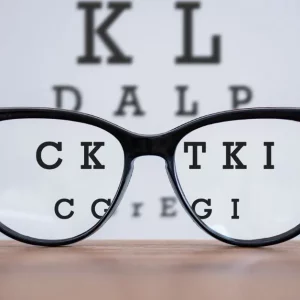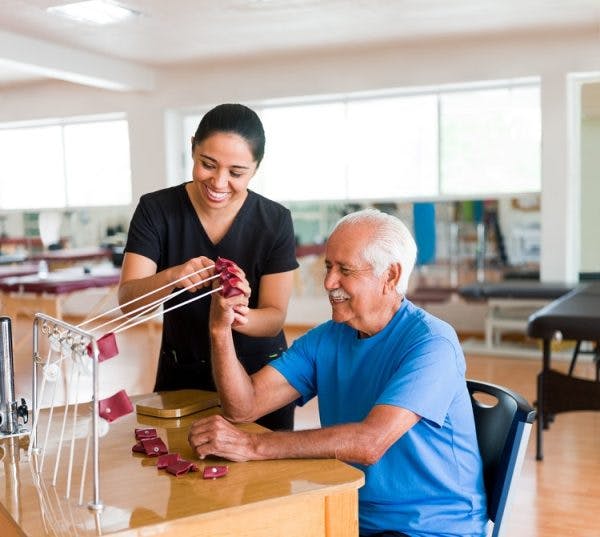TBI can be a devastating condition in elderly patients as older adults have a harder time recovering from brain injuries.
Fortunately, with the right treatment approach, even elderly patients can activate their brain’s natural repair mechanism.
This article will explain the best ways to treat a TBI in the elderly. You will also learn steps you can take to prevent TBIs from occurring.
Understanding TBI in the Elderly
More than 80,000 elderly patients experience TBIs every year, according to statistics from the CDC. Of these, approximately 75% result in hospitalizations.
These hospitalization numbers are almost double the rate of younger patients with TBI. This indicates that TBI has a greater impact and causes more severe symptoms in older adults.
For example, older adults are more at risk for intracranial bleeding compared to younger adults. This is due to vascular changes that occur during the aging process. Some of these changes include:
- Reduced dura adherence to the skull
- Increased vein fragility
- Cerebrovascular atherosclerosis
In addition, many elderly patients are on some form of anticoagulant medication, which increases their risk of bleeding. In fact, all of these factors lead to a higher risk for brain hemorrhages, even after a mild TBI.
Preventing TBI in Elderly Patients

More than half of all TBIs in elderly patients are caused by falls, usually from standing height. Other common causes include motor vehicle accidents and assaults.
A single fall increases a person’s risk of subsequent falls. This makes older adults more likely to experience repetitive TBIs. Older women are more likely to fall and hit their heads compared to older men.
Therefore, to decrease the risk of TBI in elderly patients, steps should be taken to prevent falls. Some of the best ways to accomplish this include:
- Balance exercises and strength training
- Adaptive equipment such as canes, handrails, and grab bars
- Wearing properly fitted, sturdy shoes
- Removing hazards such as loose rugs and coffee tables
- Maintaining good hydration to minimize dizziness/drops in blood pressure when standing up
For more advice on how to prevent falls, talk to an occupational therapist. They can brainstorm ideas and teach you specific prevention strategies.
Does TBI Increase Risk of Dementia in the Elderly?
Unfortunately, there does appear to be a link between TBI and dementia in elderly patients. However, it’s important to note that most older adults with TBI do not develop dementia.
The following are some conclusions that researchers on dementia and brain injury have come to:
- Severity of TBI affects risk of dementia. One major study in Denmark found that a single moderate TBI increased a person’s risk of developing dementia by 24 percent. Other studies have made similar findings.
- Repeated mild traumatic brain injury increases dementia risk. This fact was discovered in the 1920s when professional boxers started showing signs of mental decline after a few years in the ring. Today this condition is referred to as CTE or chronic traumatic encephalopathy.
Once again, while these facts appear grim, the vast majority of TBI patients will not develop dementia or Alzheimer’s.
Diagnosing TBI in Older Adults

While TBIs often lead to more severe consequences in older adults, many elderly patients do not seek treatment for head injuries.
Therefore, it can be helpful for loved ones to learn the signs of TBI so that you can seek appropriate medical treatment if it happens.
Here are some signs to look out for that might indicate a head injury:
- Are they exhibiting unusual behavior?
- Are they suddenly irritable, combative, confused, or disinhibited?
- Have they recently fallen, and are there new bruises visible, especially around their face?
- Do they complain of headaches?
- Have they stopped social activities?
If you answer yes to any of these questions, take your loved one to their doctor right away.
TBI Rehabilitation for the Elderly
Elderly patients tend to have slower TBI recovery rates. Still, most older adults recover well from a traumatic brain injury, according to research from the American Academy of Neurology. This is especially true if they receive early, intense TBI rehabilitation.
The best place for older TBI patients to receive this type of rehab is at an inpatient rehab facility or skilled nursing facility, depending on the level of rehab they need and what their discharge plan is. There, they will receive personalized, intensive therapy from their own team of doctors and therapists throughout the week.
Why Intensive Therapy Matters
Doctors encourage intensive therapy at inpatient facilities because the brain enters a heightened state of neuroplasticity during the first three months after TBI.
Neuroplasticity refers to the brain’s ability to rewire itself and repair neural connections. This means the brain heals itself fastest during this period.
In the past, doctors believed neuroplasticity could only be activated when the brain was young. Today, however, research shows that neuroplasticity is still present even in old age. Therefore, elderly patients can take advantage of it to boost their recovery.
To engage neuroplasticity requires consistent repetition and exercise. This explains why most doctors place so much emphasis on therapy during the early stages of recovery.
Some of the therapies you may take part in during inpatient rehab include:
- Speech and cognitive therapy
- Physical therapy
- Occupational therapy
- Psychotherapy
Once your rehab team agrees that you can perform most activities of daily living without medical supervision, you will be discharged and sent home. However, it is crucial that elderly patients find ways to continue with their therapy even at home.
The Benefits of Practicing Therapy at Home

Because TBI has a greater impact on the elderly, it is critical that they continue to receive therapy even after discharge. According to some studies, those who stop therapy shortly after returning home have poorer recovery outcomes compared to those who receive consistent therapy.
Therefore, to ensure the best recovery possible, try to do some form of home exercise at least once per day. Your therapist can make you exercise sheets if you need help remembering what to do. There are also home therapy devices you can use, such as FitMi, which can help you stay motivated.
The more you practice your exercises, the more you will stimulate your brain. This in turn will minimize cognitive decline and help you recover faster.
TBI in the Elderly: Key Points
TBIs are serious medical conditions for everyone, but especially for elderly patients. Because of the natural effects of aging, older adults are more at risk of serious complications such as brain bleeds, compared to younger patients.
Because most TBIs in elderly patients are fall-related, it is crucial to take precautions to prevent falls as you age.
If a brain injury does occur though, it is still possible to make a full recovery, even as an older adult. By activating neuroplasticity, you can rewire your brain’s neural pathways and gain back your independence. Good luck!










